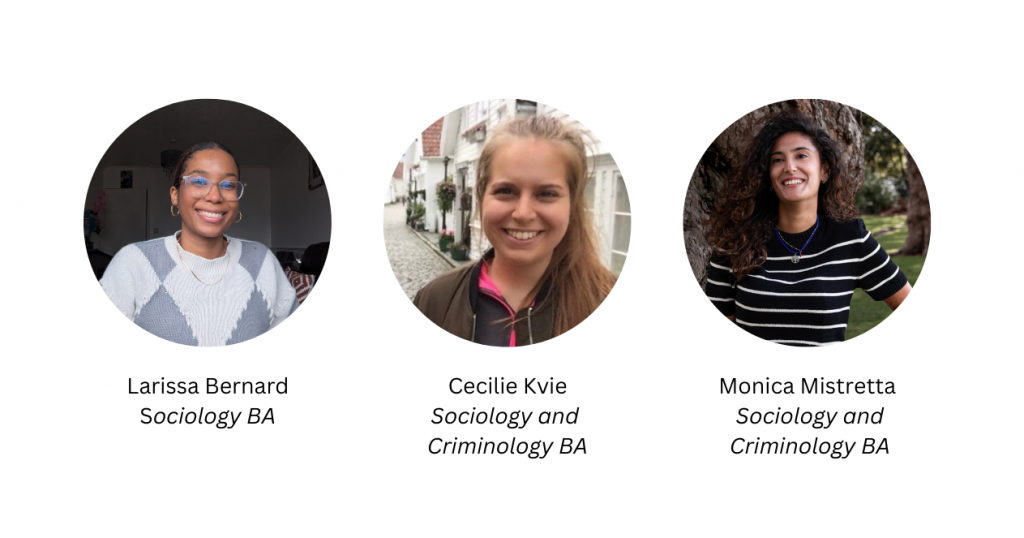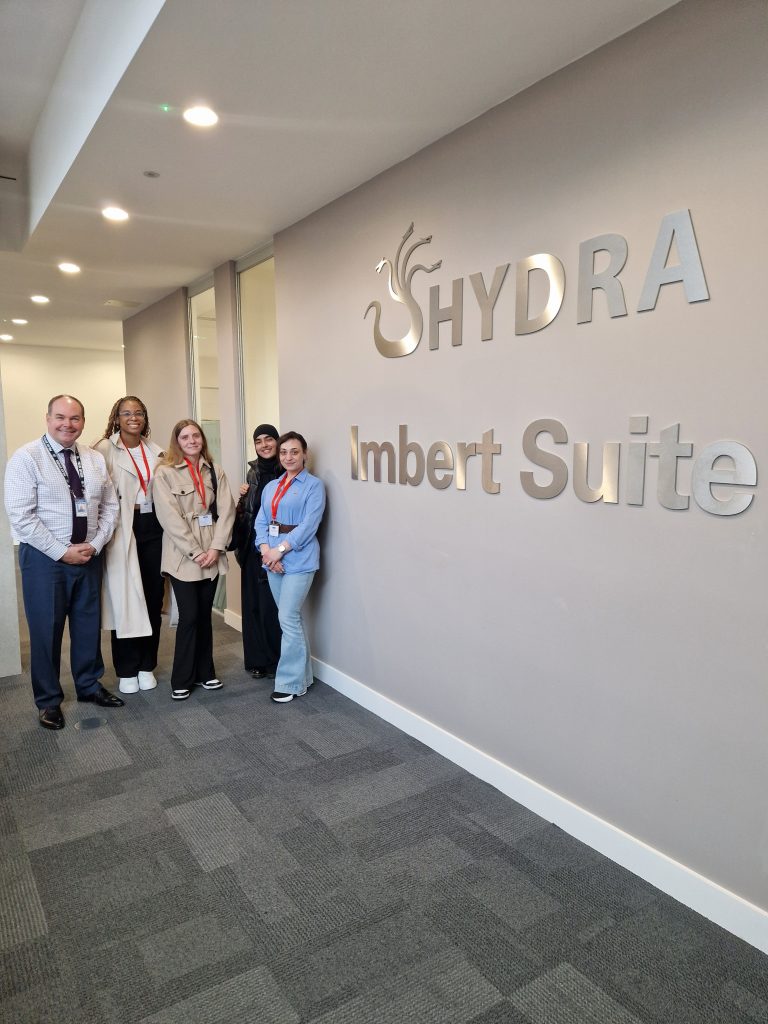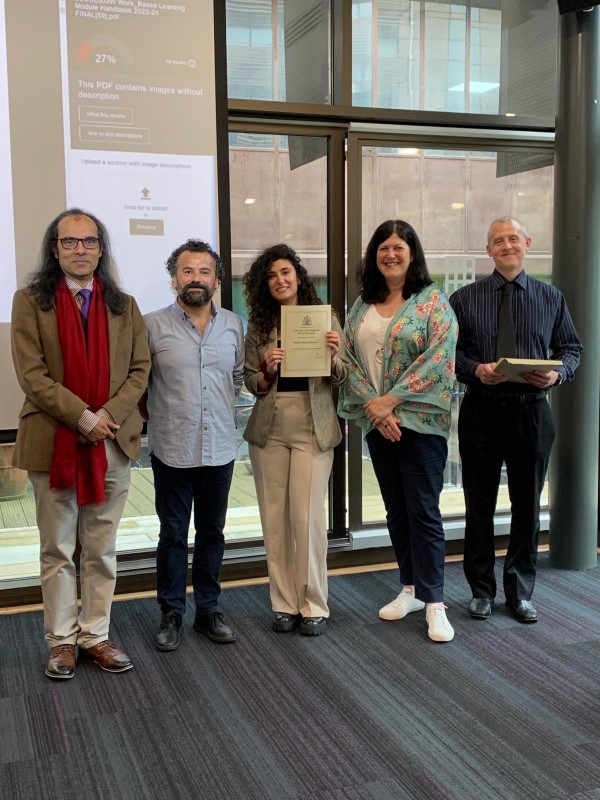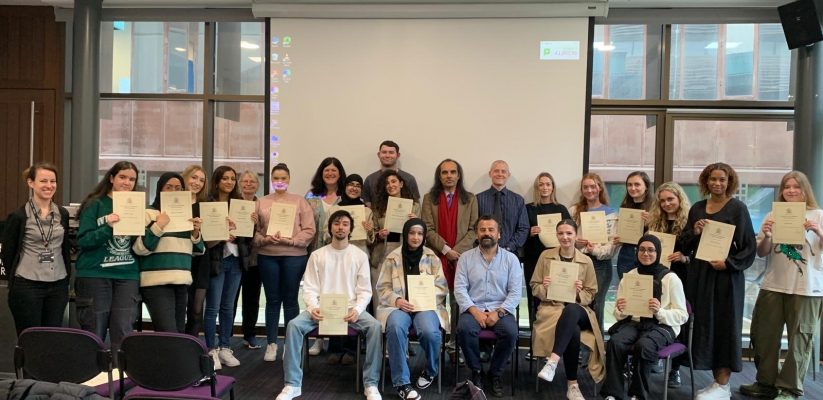As part of our Criminology and Sociology courses, students can take a Work-based Learning module that allows them to put their personal and professional skills into practice. Three students who completed a placement with the Metropolitan Police shared their experiences in an engaging conversation.
What are you currently studying?
Larissa: I’m in my final undergraduate year studying Sociology BA
Cecilie: Sociology and Criminology BA, also in my final year at Westminster.
Monica: Same here – Sociology and Criminology BA in my final year

Let’s start at the beginning. What made you decide to take a placement with the Metropolitan Police?
Larissa: It wasn’t a path I had previously considered. As a black woman studying Sociology, the police weren’t exactly on my career radar. I was hesitant at first. But something inside me said, “step out of your comfort zone,” and it turned out to be one of the most impactful experiences of my academic journey.
Cecilie: I applied to do my placement with the Metropolitan Police because I wanted to gain insight into the different careers within policing. Taking a placement allows you to apply what you have learned in real-life situations.
Monica: I was fascinated by the lived experiences of police officers. Our studies emphasise theoretical frameworks, but I wanted to understand the human side of policing. I believed gaining an insider’s perspective would be beneficial.
Tell us about your placement with the Metropolitan Police. What was your first day like?
Larissa: Surprising. The placement gave me a remarkable opportunity to gain first-hand insights into policing. From day one, I was immersed in thought-provoking training sessions on important topics such as Autism, Violence Against Women and Girls (VAWG), and culturally sensitive approaches to policing.
One session that left a lasting impression was about supporting black boys with autism in ways that avoided bias and ensured fairness. Witnessing how the Metropolitan Police addressed such complex and sensitive issues challenged my preconceived notions and deepened my understanding of community engagement.
Cecilie: We had some incredible practical experiences. The Metropolitan Police were surprisingly self-aware: they knew their reputation – especially around targeting ethnic minorities. We got to participate in training new recruits and witnessed how they actively work to change that viewpoint, educating new recruits about bias and community engagement.

What was the most memorable part of your placement?
Cecilie: The most memorable days were the Hydra Day and the Forensic Crime Day. During Hydra Day, we got a taste of what it’s like to be a police officer as we worked on a case and acted in that role for a day. During the Forensic Crime Day, we experienced collecting evidence from crime scenes.
Monica: Two activities that remained particularly significant for me were the Lived Community Experience and the Hydra Day. In the Lived Community Experience, we listened to challenging stories shared by community members about their encounters with the police.
The Hydra experience included a simulation of a daily call that officers must attend. This experience helped me grasp the value of teamwork and demonstrated the emotional challenges of the job. Additionally, I realised the significant amount of legislation that officers must navigate when responding to a call – a complexity that should not be underestimated.
How has this placement changed your perspective and influenced your career goals?
Larissa: By the end of the placement, my perspective on the Metropolitan Police had completely changed. What began as a tentative step evolved into a profound sense of purpose. I started to see a potential career in this field – not just as an observer, but as someone who could help drive meaningful change. I became inspired to pursue a career that combines my passion for therapy with community support, with the hope of contributing to officer well-being and creating positive change.
Cecilie: The placement helped me improve my communication, problem-solving, collaboration, and critical-thinking skills. These are all skills that make me more employable and are important in my ideal career paths.
Monica: I learnt that I could actually apply for law enforcement roles – something I never thought possible. It’s opened up an entire career path I didn’t know existed. I am now considering applying for Metropolitan Police roles following my graduation.

What advice would you give to other students considering a similar placement?
Larissa: Make sure you take part! These experiences are transformative. They help you clarify your goals and provide direction for your future.
Cecilie: Choose a placement in a field you are interested in. This way, you can already determine if it’s a career you can see yourself pursuing.
Monica: My advice is simple: see with your own eyes! Also, reach out to students who have previously taken the placement if you have any queries – we are here to help.
About Westminster
As one of the most diverse universities in the UK, we are a global university with London energy, with more than 19,000 students from 169 countries. To learn more about our Criminology and Sociology courses, visit our website.
